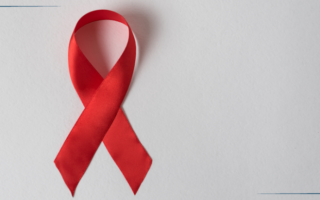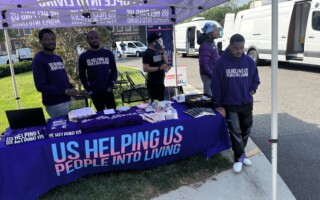In the US, the Population Council has offices in New York City and Washington, D.C.
The Population Council’s Center for Biomedical Research (CBR)—located on Rockefeller University’s New York City campus—develops novel contraceptives and products that protect against sexually transmitted infections, collaborates with industry and academic partners, and leverages the Council’s global presence to ensure our biomedical products are introduced and accessible worldwide.
The Council’s transdisciplinary scientists in the United States lead global and US-based social and behavioral science research projects and initiatives to advance the Council’s strategic plan which tackles pressing social, economic, health, and climate issues. Our research and innovations are anchored in and strengthened by expertise and collaborations with partners and communities in the US and the Global South. Council researchers in the US led flagship USAID cooperative agreements including Breakthrough RESEARCH, the Evidence Project, Project SOAR, and Horizons.
The Council’s global fellowship programs provide mentorship to early career researchers across biomedical and social and behavioral sciences.
Selected current and recent projects in the US include:
- The Community Demographic Model, a global framework that generates climate and population dynamics scenario simulations is used in the US by the NYC Mayor’s Office of Climate Resiliency to create localized demographic projections for adaptation and mitigation analysis at city scale;
- The Evidence for Gender and Education Resource, a program that connects decision-makers to the data and evidence they need to address gender inequalities and injustices in the global education sector;
- The Young Asian American (AA) Health Study (YAAHS), one of the only mental health studies among AA adolescents and young adults that describes the experiences and perceptions of anti-Asian racism and violence and depression severity prior to and during the COVID-19 pandemic. The YAAHS publication is included widely on health equity syllabi; and
- Placing gender and rights at the center of comprehensive sexuality education through our It’s All One Curriculum, which is used by schools and community organizations in all 50 states.
We also translate innovations from our body of research in low to middle income countries (LMICs) to the US for marginalized populations:
- Incubated the Indigenous Adolescent Girls’ Empowerment Network (IMAGEN) for five years, to become a newly created independent organization, the Indigenous Justice Circle, moving toward greater Native American control and self-determination;
- Preventing violence perpetrated by boys and young men through programs that shift patriarchal gender norms, such as the Forging Hopeful Futures study in Washington, DC, and Pittsburgh, PA; and
- Understanding PrEP usage for HIV prevention and other sexual and reproductive health indicators among socially marginalized populations.
And our work in the US has shifted the policy landscape for achieving sexual and reproductive health, rights, and choices. The Council-developed Copper-T IUD and Mirena intrauterine system brought highly safe and efficacious long-acting reversible contraceptives to the United States. In 2000, the Council secured US FDA approval for mifepristone, the abortion pill. And evidence from our pharmacy-based HIV PrEP (pharmPrEP) service delivery model for Black adults in Washington, D.C. will help inform DC Health, which is currently reviewing pharmPrEP legislative models.
The Council is home to two peer-reviewed journals, Population and Development Review (PDR) and Studies in Family Planning (SFP), which are managed by US-based editorial teams and global editorial committees. PDR and SFP—both committed to diversity in scholarly publishing—are now the top ranked journals among demography and sexual and reproductive health publications. Our journals set discourse and shape understanding of issues in the global health and development sector—measured not just by citations but through contributions in transforming evidence-based programs and policies around the world.



